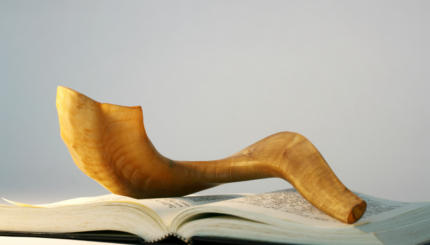Is the Kaparot ceremony a “mere superstition?” (Arutz Sheva)
To get the most from Neilah, you need some “Neilah training.” Here’s how. (Chicago Jewish News)
Is our fate determined on the Day of Atonement? And if God is writer of our fate, “What kind of writing would God prefer? Fiction? Journalism? Scholarship?” (Jewish Exponent)
Could Yom Kippur be changing from a day one feels oppressed by religious rules, to a day one feels liberated from driving and shopping, and living an environmentally better day? (Ha’aretz)
Rabbi David Greenspoon leads a guided imagery for the Yom Kippur Yizkor service, and he talks about how this works, and how those at Yizkor services seeking to reclaim their wholeness can find the power, and the understanding of time, needed to accomplish this. (Baltimore Jewish Times)
Jay Michaelson complains: “On Yom Kippur, ostensibly the holiest of days, suddenly we’re left to fend for ourselves in a confusing haze of outdated theology and deracinated ritual….Yom Kippur is often the holiday of confusion and befuddlement.” (Forward)
The problem with Yom Kippur in the synagogue is that “it is too complete and comprehensive. It creates the myth of putting all of one’s life and behavior up for judgment, where we confront every one of our failings and repent for them all.” (Shalom Hartman Institute)
Yizkor
Pronounced: YIZZ-kur, Origin: Hebrew, literally “May God remember,” Yizkor is a prayer service in memory of the dead, which is held on Yom Kippur and on the last day of each of the three festivals, Passover, Shavuot and Shemini Atzeret.
Yom Kippur
Pronounced: yohm KIPP-er, also yohm kee-PORE, Origin: Hebrew, The Day of Atonement, the holiest day on the Jewish calendar and, with Rosh Hashanah, one of the High Holidays.

